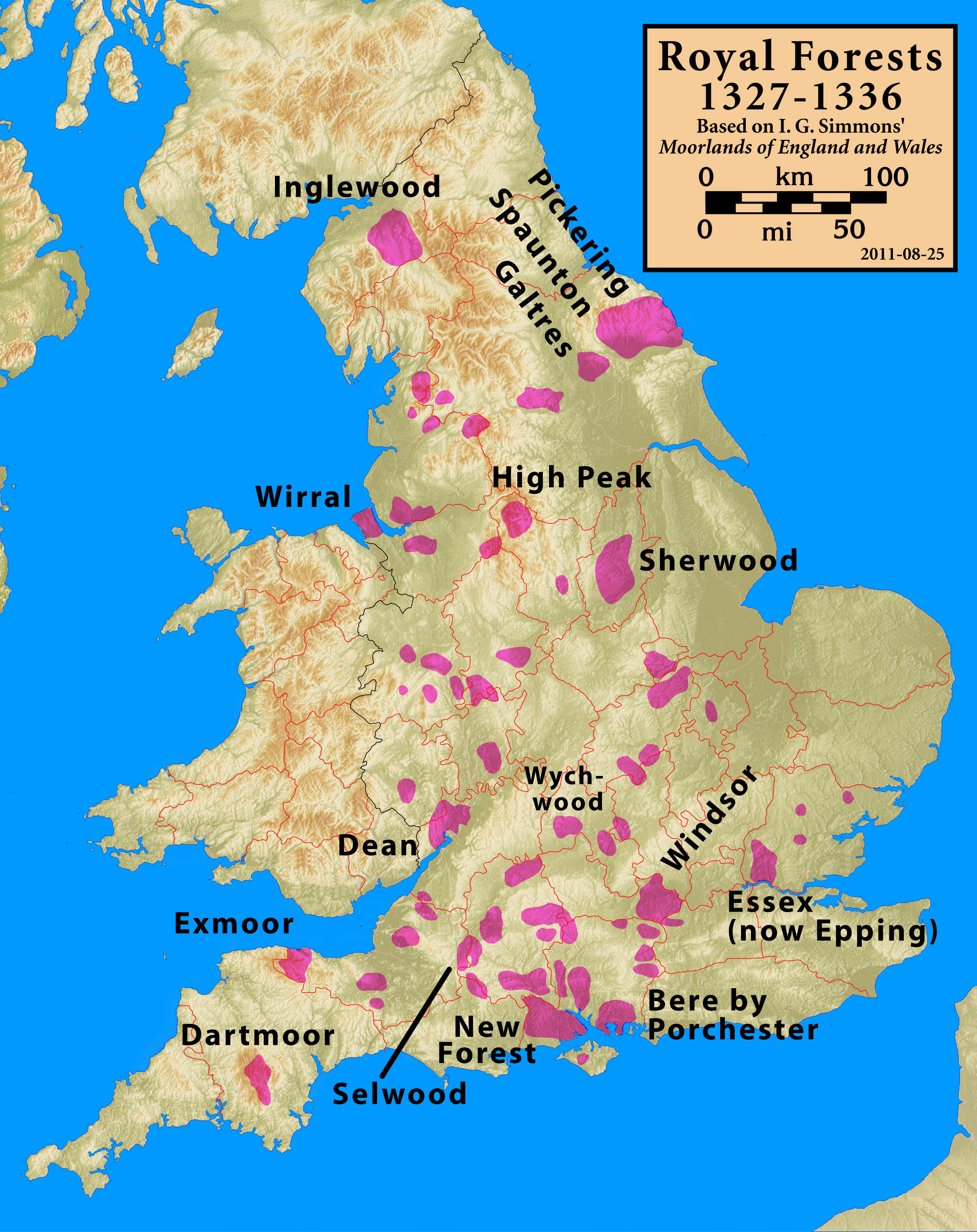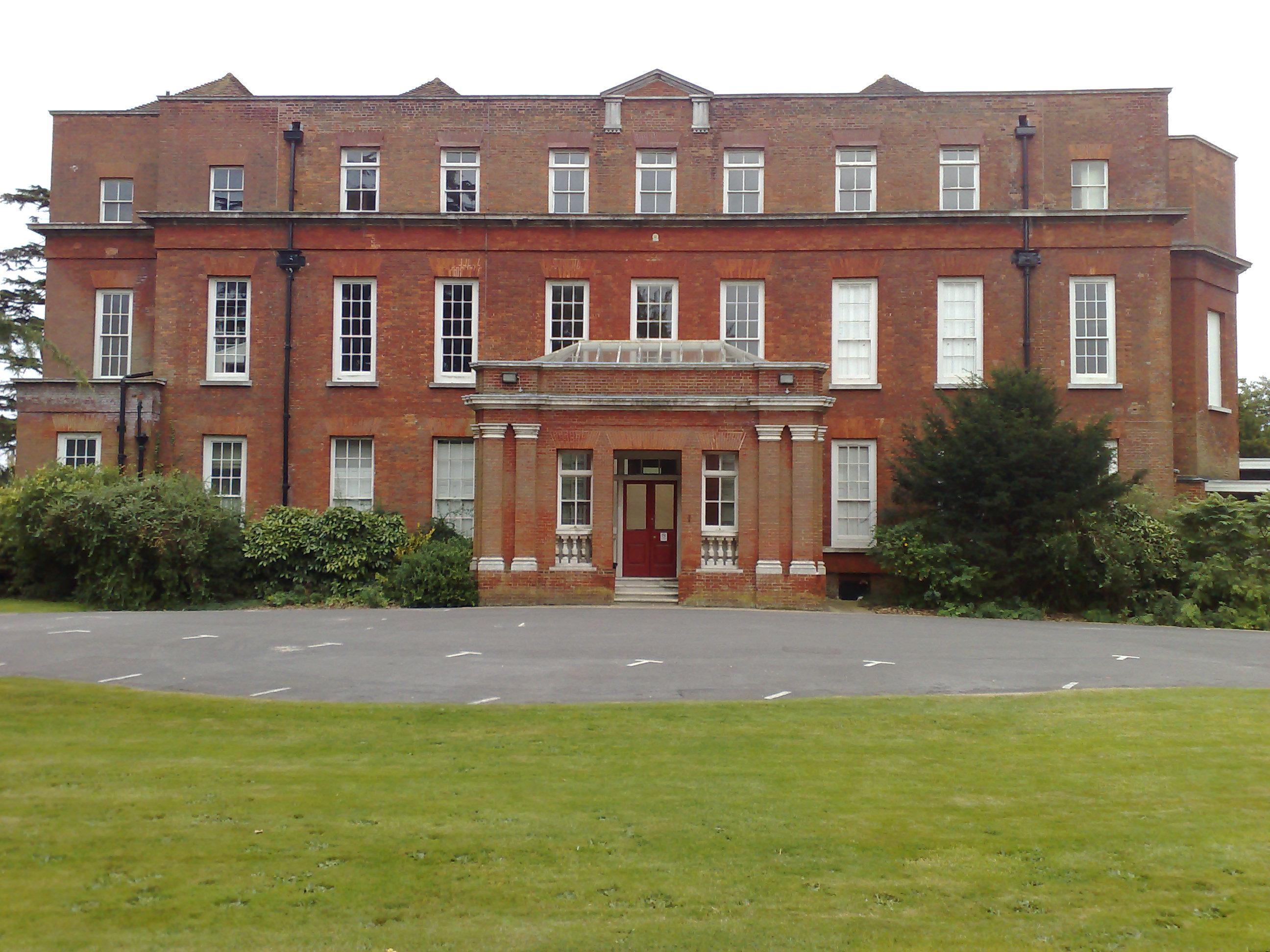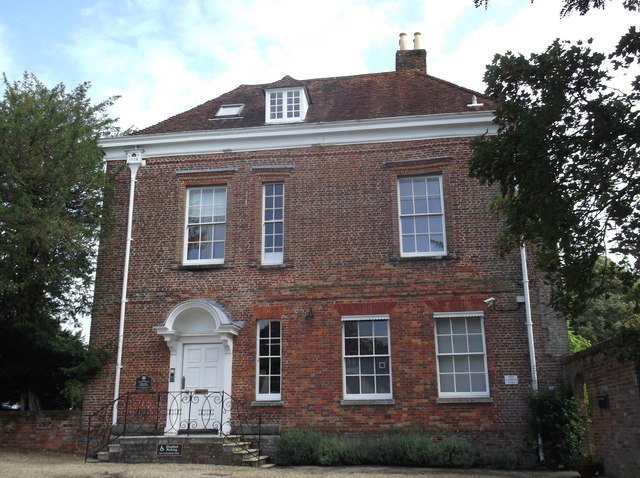|
Henry Bromfield
Henry Bromfield (c. 1610 – 19 February 1683) was an English politician who sat in the House of Commons in 1660. He was a verderer of the New Forest. Bromfield was the son of Arthur Bromfield and his wife Lucy Quinby and was of Chawcroft, Hampshire. In 1660, he was elected Member of Parliament for Lymington in the Convention Parliament. He was a verderer of the New Forest, and bow bearer to King Charles II. Bromfield married Frances Kempe, daughter of Thomas Kempe. who brought him the property of Haywood, Hampshire. References {{DEFAULTSORT:Bromfield, Henry 1610 births 1683 deaths English MPs 1660 Year of birth uncertain People from South Stoneham ... [...More Info...] [...Related Items...] OR: [Wikipedia] [Google] [Baidu] |
House Of Commons Of England
The House of Commons of England was the lower house of the Parliament of England (which incorporated Wales) from its development in the 14th century to the union of England and Scotland in 1707, when it was replaced by the House of Commons of Great Britain after the 1707 Act of Union was passed in both the English and Scottish parliaments at the time. In 1801, with the union of Great Britain and Republic of Ireland, Ireland, that house was in turn replaced by the House of Commons of the United Kingdom. Origins The Parliament of England developed from the Magnum Concilium that advised the English monarch in medieval times. This royal council, meeting for short periods, included ecclesiastics, noblemen, and representatives of the county, counties (known as "knights of the shire"). The chief duty of the council was to approve taxes proposed by the Crown. In many cases, however, the council demanded the redress of the people's grievances before proceeding to vote on taxation. Thus ... [...More Info...] [...Related Items...] OR: [Wikipedia] [Google] [Baidu] |
New Forest
The New Forest is one of the largest remaining tracts of unenclosed pasture land, heathland and forest in Southern England, covering southwest Hampshire and southeast Wiltshire. It was proclaimed a royal forest by William the Conqueror, featuring in the Domesday Book. It is the home of the New Forest Commoners, whose ancient rights of common pasture are still recognised and exercised, enforced by official verderers and agisters. In the 18th century, the New Forest became a source of timber for the Royal Navy. It remains a habitat for many rare birds and mammals. It is a biological and geological Site of Special Scientific Interest. Several areas are Geological Conservation Review and Nature Conservation Review sites. It is a Special Area of Conservation, a Ramsar site and a Special Protection Area. Copythorne Common is managed by the Hampshire and Isle of Wight Wildlife Trust, Kingston Great Common is a national nature reserve and New Forest Northern Commons is managed b ... [...More Info...] [...Related Items...] OR: [Wikipedia] [Google] [Baidu] |
South Stoneham
South Stoneham was a Manorialism, manor in South Stoneham ecclesiastical parish, parish. It was also a Hundred (country subdivision), hundred, Poor law union, sanitary district then rural district covering a larger area of south Hampshire, England close to Southampton. These last four South Stoneham divisions covered much of modern-day north Southampton suburbs and the Borough of Eastleigh. The manor house (South Stoneham House) and parish church (St. Mary's Church, South Stoneham, St Mary) are in Swaythling. Southampton was a second manor, but took over from South Stoneham as a name in general use. Manor and estate of South Stoneham (990–present) A charter dating from 990 relates to the manor of South Stoneham, and archaeological evidence of a Saxon settlement was found during building works in the area immediately around the current South Stoneham House. The manor of South Stoneham was originally called Bishop's Stoneham, and was held by the Bishop of Winchester at the time o ... [...More Info...] [...Related Items...] OR: [Wikipedia] [Google] [Baidu] |
Hampshire
Hampshire (, ; abbreviated to Hants) is a ceremonial county, ceremonial and non-metropolitan county, non-metropolitan counties of England, county in western South East England on the coast of the English Channel. Home to two major English cities on its south coast, Southampton and Portsmouth, Hampshire is the 9th-most populous county in England. The county town of Hampshire is Winchester, located in the north of the county. The county is bordered by Dorset to the south-west, Wiltshire to the north-west, Berkshire to the north, Surrey to the north-east, and West Sussex to the south east. The county is geographically diverse, with upland rising to and mostly south-flowing rivers. There are areas of downland and marsh, and two national parks: the New Forest National Park, New Forest and part of the South Downs National Park, South Downs, which together cover 45 per cent of Hampshire. Settled about 14,000 years ago, Hampshire's recorded history dates to Roman Britain, when its chi ... [...More Info...] [...Related Items...] OR: [Wikipedia] [Google] [Baidu] |
Member Of Parliament
A member of parliament (MP) is the representative in parliament of the people who live in their electoral district. In many countries with bicameral parliaments, this term refers only to members of the lower house since upper house members often have a different title. The terms congressman/congresswoman or deputy are equivalent terms used in other jurisdictions. The term parliamentarian is also sometimes used for members of parliament, but this may also be used to refer to unelected government officials with specific roles in a parliament and other expert advisers on parliamentary procedure such as the Senate Parliamentarian in the United States. The term is also used to the characteristic of performing the duties of a member of a legislature, for example: "The two party leaders often disagreed on issues, but both were excellent parliamentarians and cooperated to get many good things done." Members of parliament typically form parliamentary groups, sometimes called caucuse ... [...More Info...] [...Related Items...] OR: [Wikipedia] [Google] [Baidu] |
Lymington (UK Parliament Constituency)
Lymington was a parliamentary borough in Hampshire, which elected two Members of Parliament (MPs) to the House of Commons The House of Commons is the name for the elected lower house of the bicameral parliaments of the United Kingdom and Canada. In both of these countries, the Commons holds much more legislative power than the nominally upper house of parliament. ... from 1584 until 1868, and then one member from 1868 until 1885, when the borough was abolished. Members of Parliament 1584-1640 1640-1868 1868-1885 Election results Elections in the 1830s Elections in the 1840s Elections in the 1850s Keppel resigned, causing a by-election. Elections in the 1860s Carnac's resignation caused a by-election. ''Seat reduced to one member'' Elections in the 1870s Elections in the 1880s ... [...More Info...] [...Related Items...] OR: [Wikipedia] [Google] [Baidu] |
Convention Parliament (1660)
The Convention Parliament of England (25 April 1660 – 29 December 1660) followed the Long Parliament that had finally voted for its own dissolution on 16 March that year. Elected as a "free parliament", i.e. with no oath of allegiance to the Commonwealth or to the monarchy, it was predominantly Royalist in its membership. It assembled for the first time on 25 April 1660. After the Declaration of Breda had been received, Parliament proclaimed on 8 May that King Charles II had been the lawful monarch since the death of Charles I in January 1649. The Convention Parliament then proceeded to conduct the necessary preparation for the Restoration Settlement. These preparations included the necessary provisions to deal with land and funding such that the new régime could operate. Reprisals against the establishment which had developed under Oliver Cromwell were constrained under the terms of the Indemnity and Oblivion Act which became law on 29 August 1660. Nonetheless there were p ... [...More Info...] [...Related Items...] OR: [Wikipedia] [Google] [Baidu] |
Verderer (New Forest)
In the New Forest a verderer is an unpaid officer whose duty is to regulate and protect the interests of the New Forest commoners, and to preserve the natural beauty and good traditional character of the Forest. There are ten verderers, together constituting the Court of Verderers (or Court of Swainmote). The Court of Verderers The Court has ancient origins but in its present form is a corporate body set up under the New Forest Act 1887 and reconstituted in 1949. It consists of ten verderers, five of whom are elected by the commoners, and four of whom are appointed respectively by the Department for Environment, Food and Rural Affairs, the Forestry Commission, the National Park Authority, and Natural England. The remaining position is held by the Official Verderer who serves as chair of the Court and who is appointed by the Sovereign. The Court has the same status as a Magistrates Court, and acting under its authority the verderers are responsible for regulating commoning wit ... [...More Info...] [...Related Items...] OR: [Wikipedia] [Google] [Baidu] |
Bow Bearer
In Old English law, a Bowbearer was an under-officer of the forest who looked after all manner of trespass on vert or venison, and who attached, or caused to be attached, the offenders, in the feudal Court of Attachment. The bow was a renowned English weapon, made of wood from the yew tree. Examples of the role The best-documented example of Bowbearers in England is to be found in the Forest of Bowland in north-eastern Lancashire. In the late twelfth century, Oughtred de Bolton, son of Edwin de Bolton ("Edwinus Comes de Boelton" in the '' Domesday Book'') is described as an early Bowbearer in the royal forests of Bowland and Gilsland, at the time of Henry II. However, this account is flawed as the possibility of Oughtred being the son of Edwin is fanciful and cannot be substantiated. It would have been impossible for Oughtred to have been Bowbearer of Gilsland before the 1170s when the barony was first brought into the Norman realm. Prior to that, it had formed part of th ... [...More Info...] [...Related Items...] OR: [Wikipedia] [Google] [Baidu] |
1610 Births
Year 161 ( CLXI) was a common year starting on Wednesday (link will display the full calendar) of the Julian calendar. At the time, it was known as the Year of the Consulship of Caesar and Aurelius (or, less frequently, year 914 '' Ab urbe condita''). The denomination 161 for this year has been used since the early medieval period, when the Anno Domini calendar era became the prevalent method in Europe for naming years. Events By place Roman Empire * March 7 – Emperor Antoninus Pius dies, and is succeeded by Marcus Aurelius, who shares imperial power with Lucius Verus, although Marcus retains the title Pontifex Maximus. * Marcus Aurelius, a Spaniard like Trajan and Hadrian, is a stoical disciple of Epictetus, and an energetic man of action. He pursues the policy of his predecessor and maintains good relations with the Senate. As a legislator, he endeavors to create new principles of morality and humanity, particularly favoring women and slaves. * Aurelius red ... [...More Info...] [...Related Items...] OR: [Wikipedia] [Google] [Baidu] |
1683 Deaths
Events January–March * January 5 – The Brandenburger—African Company, of the German state of Brandenburg, signs a treaty with representatives of the Ahanta tribe (in what is now Ghana), to establish the fort and settlement of Groß Friedrichsburg, in honor of Frederick William, Elector of Brandenburg. The location is later renamed Princes Town, also called Pokesu. * January 6 – The tragic opera '' Phaëton'', written by Jean-Baptiste Lully and Philippe Quinault, is premiered at the Palace of Versailles. * January 27 – Gove's Rebellion breaks out in the Province of New Hampshire in North America as a revolt against the Royal Governor, Edward Cranfield. Most of the participants, and their leader Edward Gove, are arrested. Gowe is convicted of treason but pardoned three years later. * February 7 – The opera '' Giustino'' by Giovanni Legrenzi and about the life of the Byzantine Emperor Justin, premieres in Venice. * March 14 – Age ... [...More Info...] [...Related Items...] OR: [Wikipedia] [Google] [Baidu] |
English MPs 1660
English usually refers to: * English language * English people English may also refer to: Peoples, culture, and language * ''English'', an adjective for something of, from, or related to England ** English national identity, an identity and common culture ** English language in England, a variant of the English language spoken in England * English languages (other) * English studies, the study of English language and literature * ''English'', an Amish term for non-Amish, regardless of ethnicity Individuals * English (surname), a list of notable people with the surname ''English'' * People with the given name ** English McConnell (1882–1928), Irish footballer ** English Fisher (1928–2011), American boxing coach ** English Gardner (b. 1992), American track and field sprinter Places United States * English, Indiana, a town * English, Kentucky, an unincorporated community * English, Brazoria County, Texas, an unincorporated community * Engli ... [...More Info...] [...Related Items...] OR: [Wikipedia] [Google] [Baidu] |




